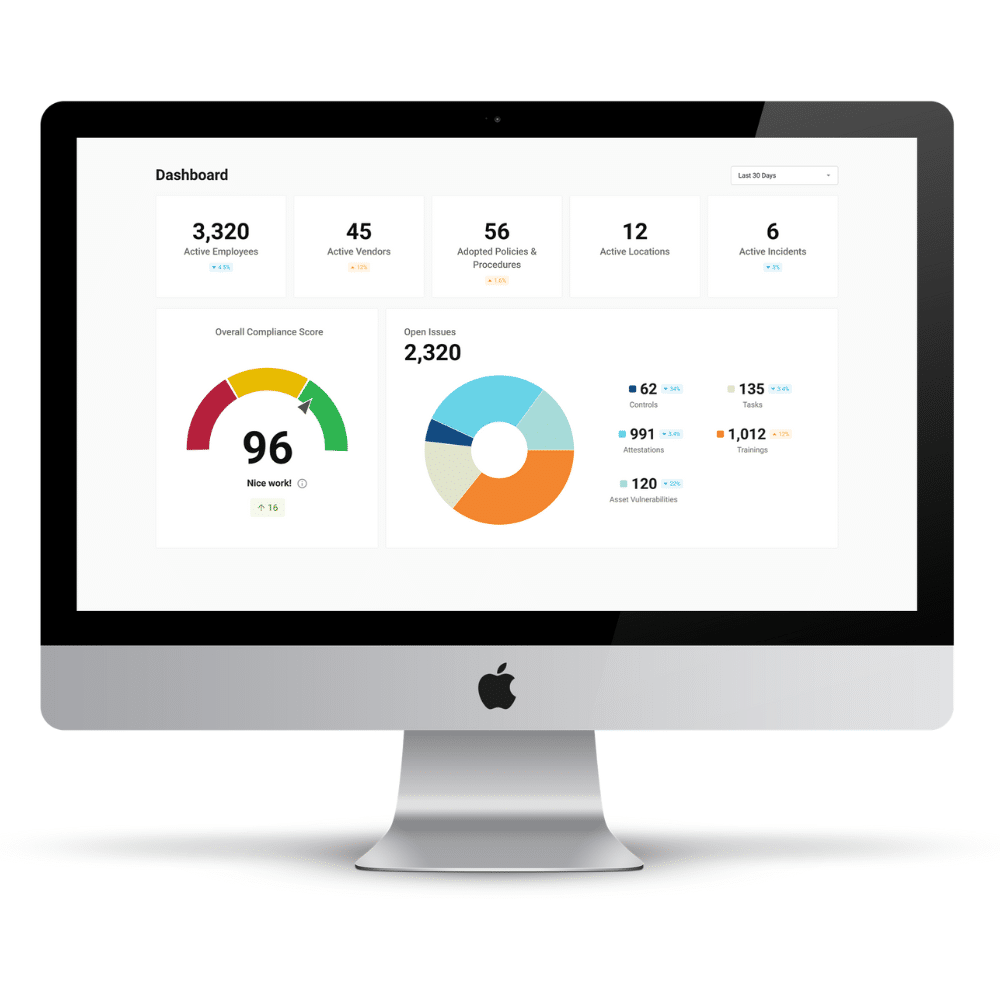Adherence to regulations and ethical standards is extremely important in today’s complex healthcare landscape. This responsibility falls on the shoulders of healthcare compliance managers, professionals who play a vital role in ensuring that healthcare organizations operate within legal boundaries and maintain the highest standards of integrity.
Let’s delve into the world of healthcare compliance management, exploring the key responsibilities, skills required, and the importance of these professionals in maintaining a trustworthy healthcare system.
Responsibilities of a Healthcare Compliance Manager: How to Have Effective Compliance
A healthcare compliance manager is responsible for developing, implementing, and maintaining an effective compliance program within a healthcare organization to ensure they comply with local, state, and federal laws governing healthcare practices.
They must ensure that all employees are aware of and comply with:
- Relevant Laws
- Regulations
- Policies & Procedures
These professionals conduct regular audits and risk assessments to identify areas of non-compliance or potential risks. By staying up-to-date with changing regulations, they help protect patients’ rights while preventing fraud or abuse. Additionally, they collaborate with other departments to design training programs on compliance regulations, and create a culture of accountability throughout the organization.
The Significance of Effective Healthcare Compliance Management
Effective healthcare compliance management ensures legal and ethical practices and promotes patient safety and quality care outcomes. By establishing comprehensive policies and procedures, healthcare compliance managers create a culture of accountability throughout the organization.
They work closely with various departments to provide guidance on:
- Compliant Practices
- Identify Areas of Improvement
- Implement Corrective Actions
This proactive approach helps to prevent costly legal issues while enhancing patient trust.
Skills Required for Effective Healthcare Compliance Management
To excel as a healthcare compliance manager, specific skills are essential to hold to keep your organization intact.
1. Strong Knowledge of Healthcare Laws & Regulations
Understanding complex legislation such as HIPAA (Health Insurance Portability and Accountability Act), OSHA (Occupational Safety and Health Act), and HITECH (Health Information Technology for Economic and Clinical Health Act) is critical for effective healthcare compliance management.
2. Excellent Communication Skills
A healthcare compliance manager must be able to articulate regulatory requirements clearly to employees at all levels within an organization. They should possess exceptional interpersonal skills to build relationships with stakeholders across various departments.
3. Attention to detail
Healthcare compliance managers need to thoroughly review policies, contracts, and documentation to ensure accuracy and adherence to regulations. Being meticulous helps them identify any potential risks or areas of improvement.
The Role of Healthcare Compliance Organizations: Exchanging Ideas & Learning About Emerging Trends
Various healthcare compliance organizations exist to aid healthcare compliance managers in navigating the ever-evolving healthcare landscape.
These organizations provide resources such as:
- Training Programs
- Industry Updates
- Professional Certifications
To stay current with emerging trends in healthcare compliance management, professionals can benefit from collaboration with industry peers through membership in healthcare compliance organizations.
These organizations provide valuable resources such as:
- Educational Conferences
- Webinars
- Forums
- Publications
- Networking Opportunities
By participating in these events, healthcare compliance managers can expand their knowledge base, exchange best practices with colleagues facing similar challenges, gain insights into new regulatory developments, and enhance professional growth.
Compliancy Group’s healthcare compliance management software facilitates the successful implementation and maintenance of compliance programs. With ongoing support and monitoring of the changing regulatory landscape, compliance managers can be confident in the success of their programs.
Healthcare Compliance Organizations Supporting Ongoing Professional Development
Healthcare compliance organizations also play a crucial role in supporting ongoing professional development. They offer certification programs that validate expertise and enhance career prospects for healthcare compliance managers.
These certifications demonstrate proficiency in healthcare compliance management principles and assure employers of an individual’s commitment to maintaining ethical practices within their organization. Continuing education courses offered by these organizations enable professionals to stay updated on the latest regulations, policies, and best practices.
Ultimately, healthcare compliance managers are integral to ensuring that ethical standards are maintained within healthcare organizations. Their expertise in understanding complex regulations helps safeguard patient rights while preventing fraud or abuse.
With their attention to detail and effective communication skills, these professionals build a culture of accountability throughout an organization. Moreover, collaboration with healthcare compliance organizations further enhances their knowledge base and supports professional development. This, in turn, upholds ethical practices which improve patient care outcomes while preserving public trust.









